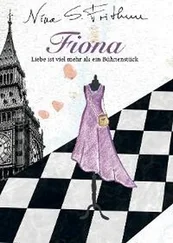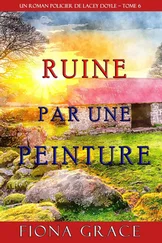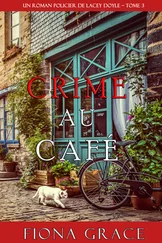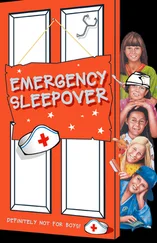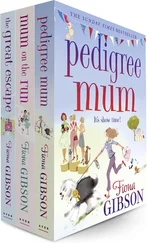When Daddy came back he told us that he had an argument with the squaddy. He had clouted the squaddy about the head with his left fist and now had a bloody nick in his skin just by the thumb knuckle.
I asked him what had started the argument.
‘He were a bastard, Daniel,’ Daddy said to me. ‘He were a bastard.’
Cathy and I thought that was fair enough.
Our house was laid out like any bungalow or park home on the outskirts of any smallish city where old people and poor families live. Daddy was no architect but he could follow a grey and white schematic rustled from the local council offices.
Our house was stronger than others of its type though. It was built with better bricks, better mortar, better stones and timber. I knew it would last many dozen seasons longer than those houses we saw on the roads into town. And it was more beautiful. The green mosses and ivies from the wood were more eager to grip at its sides, more ready to pull it back into the landscape. Every season the house looked older than it was and the longer it looked to have been there the longer we knew it would last. Like all real houses and all those that call them home.
As soon as the external walls were up I planted seeds and bulbs. The earth was still open from the foundations Daddy dug. I extended the troughs and filled them with compost and fresh manure we got from a stable eight miles down the way where little girls in fawn jodhpurs and shining leather boots rode ponies around a floodlit gymkhana. I planted pansies and daffodils and roses of all different colours and a cutting taken from a white-flowering climbing plant I found spewing out of an old drystone wall. It was the wrong time of year to plant but some shoots came up and more came the following year. Waiting is what a true house is about. Making it ours, making it settle, pinning it and us to the seasons, to the months and to the years.
We came there soon before my fourteenth birthday when Cathy had just turned fifteen. It was early summer, which gave Daddy the time to build. He knew we would be finished well before winter and there was enough of a structure to live in by the middle of September. Before then we made our home from two decommissioned army vans that Daddy had bought from a thief in Doncaster and driven to the site down back roads and tracks. We hooked them together with steel rope and tarpaulin was stretched over the top, expertly and securely, to give us shelter beneath. Daddy slept in one van and Cathy and I in the other. Under the tarpaulin there were weathered, plastic garden chairs and after some time a sunken blue sofa. We used that as our living room. We used upturned boxes to rest our mugs and plates above the ground and to rest our feet too, on warm summer evenings when there was nothing to do but sit and talk and sing.
On the clearest evenings we stayed out until morning. We clicked on the radios from both vans and Cathy and I danced on the leafy earth to our woodland stereo, safe in the knowledge any neighbour was too far to hear. Sometimes we sat and sang without the radios. Years ago, Daddy had bought me a wooden recorder and Cathy a violin. We had had free lessons when we were still at school. We were not experts but made a decent sound because of the instruments we played. Daddy had chosen well. He knew nothing of music but a great deal about fine objects. He could pick out craft and quality by the woods and the glues and the smell of the varnish and the smoothness of the edges. We had driven all the way to Leeds for them.
He knew about different woods, you see. He got to know the trees that lived in our copse early on and showed them to me. Almost all were between saplings and fifty years old as the copse had been coppiced well since long before we had moved there, for hundreds of years, even, Daddy thought. In the centre, right at the heart, there were older trees and one was the oldest of them all. The mother, Daddy said, from which all the others had come. She had been there for over two hundred years and her bark was set hard like scraped kauri gum.
There were hazel trees too and some of those dropped nuts. Daddy cut branches away from the trunks and showed me how to work the greenwood with a sharp folding knife. I spent days trying to fashion a thin flute from fresh greenwood, whittling the soft bark away from the sinew and gouging out the fleshy innards. I worked precisely to make the outside as smooth as I could, curved like a finger. But the flute did not sound and after that I moved towards making things that were useful, objects that required less skill, or rather, things that were able to exist even if they were not precisely so. As long as a bowl holds its charge it is easy to define even if it is ugly and rough. But if a flute does not make a musical note it cannot be called a flute.
Our home in the woods had a kitchen and a large oak table. When we still camped, Daddy cooked on a barbecue he had made from pieces of corrugated iron and charcoal that he had baked in two oil drums in the heart of the copse near the old mother tree.
We ate too much meat in those days. We followed Daddy’s diet so ate the food he had cooked for himself before we had come to live with him permanently. This was mainly the meat he hunted. He did not care for fruit or vegetables. He hunted wood pigeon, rock dove, collared dove, pheasant and woodcock, if he caught them in the evenings coming out of cover. There were muntjac around too and when there was too little to hunt or when he had cash in his pocket or when he just fancied a change he went into the village and bargained for joints of beef, lamb or pork sausages. In the right season there was smaller game for breakfast. A man in the village had a merlin and with it he caught too many skylarks to eat alone so gave them to us in exchange for birds that were too big for the merlin to steal. We ate the skylarks on toast, almost whole, with mugs of hot, milky tea.
Once Daddy went away with the travellers for four days and returned with a hessian sack of plucked ducks and five crates of live chickens. He constructed a coop for the chickens near where the back door of the house was going to be. We ate eggs after that but still hardly any vegetables or fruit except berries from the sides of the roads.
It was later, when the house was built, that I planted apple and plum trees and asked Daddy to bring sacks of carrots and parsnips from the village when he went down there for business. I prepared what he brought on the scrubbed kitchen table with knives my Daddy had sharpened.
Before the house was built, in those few hot, dry months when we camped and sang, Daddy talked to us properly. He used few words but we heard much more. He spoke of the men he had fought and the men he had killed, in the peat fields of Ireland or that black mud of Lincolnshire that clings to the hands and feet like forensic ink. Daddy boxed for money with bare knuckles far from gymnasiums or auditoriums but the money could be big and men whose cash came from nowhere arrived from across the country to lay their bets on him to win. Anyone was a fool not to back my Daddy. He could knock a man out with just one punch and if it lasted longer it was because he wanted a full fight.
The bouts were arranged by travellers or rough men from around who desired the chance to test themselves and earn a slice of cash. The travellers had fought in this way for centuries. ‘Prize Fights’ or ‘Fair Fights’ they called them. They wore no padded gloves nor did they divide the bouts into rounds with breaks. These men would not fight for the splitting peace-toll of the bell but until one surrendered or was bludgeoned cold. Sometimes the fights rested disputes between warring clans. As often as not they were for money. Tens of thousands of pounds could be settled and Daddy made a decent living from it.
Читать дальше
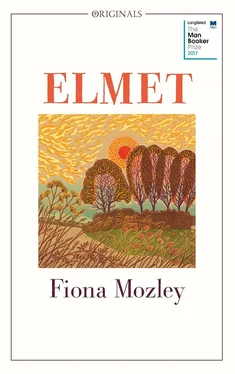

![David Jagusson - Fiona wird durchgefickt [BDSM]](/books/491106/david-jagusson-fiona-wird-durchgefickt-bdsm-thumb.webp)
